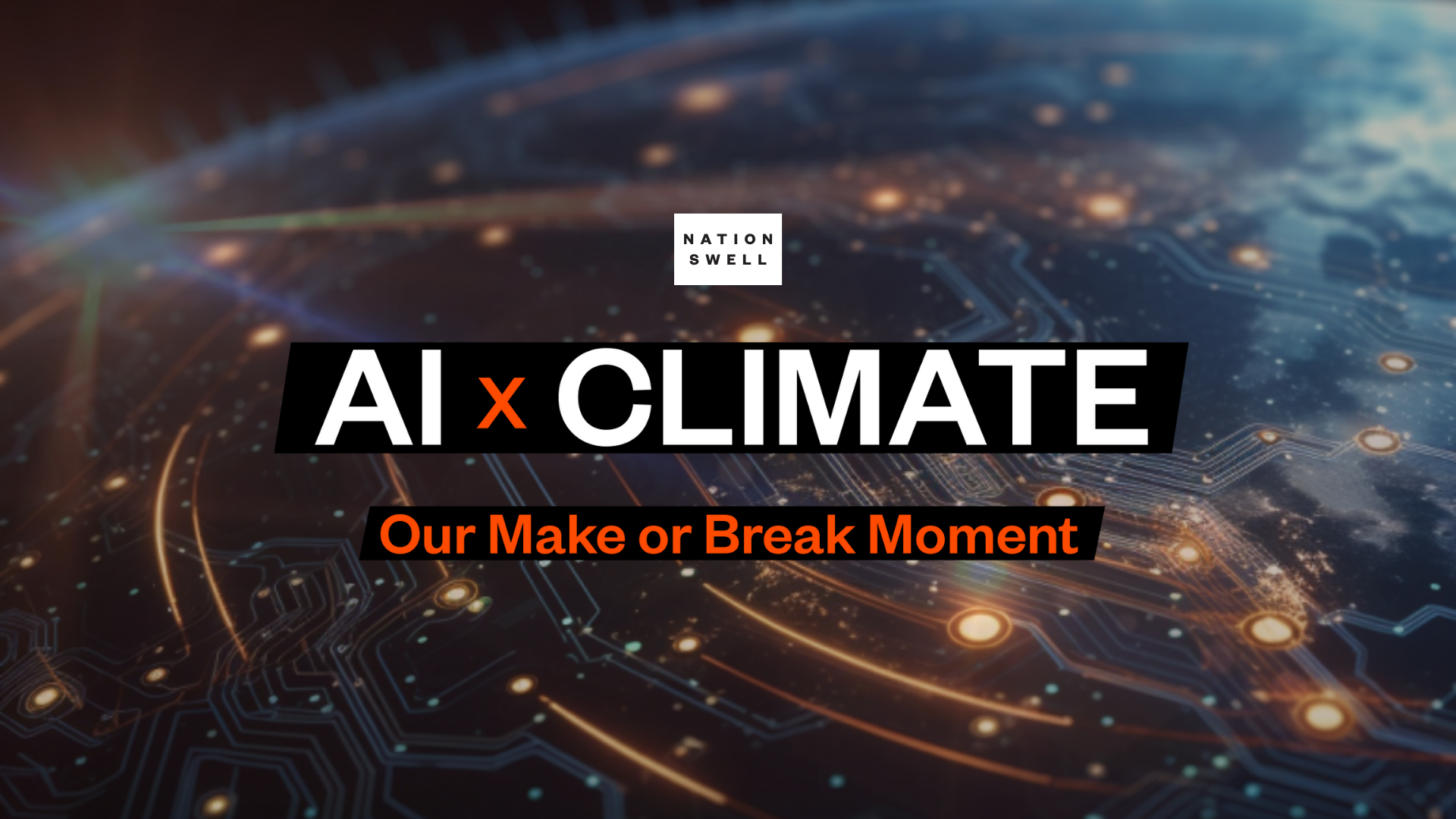On Tuesday, November 28th, NationSwell convened a panel of thought leaders, experts, and innovators at the intersection of AI and Climate to explore the transformative potential of AI in addressing climate-related issues.
Here are the takeaways from the event:
Where there lies opportunity for deploying technology to efficiently manage the impacts of the climate crisis, there also lies remarkable environmental risks. AI-driven technology solutions can generate positive climate progress. For instance, Amini AI brings data to smallholder farmers in Africa to drive their economic inclusion and supply chain resilience. And Pano AI uses AI-powered detection technology to mitigate and manage wildfires. While these types of solutions are needed, deploying AI may also increase environmental challenges. Consider this: if the global population switches from web-based Google searches to AI, increased electricity use would equate to the entire energy usage of the country of Ireland.
The tradeoff between AI-powered efficiency and climate impacts can be partially addressed with better alignment to our natural biorhythm. While AI is often celebrated as a tool for moving faster, speed is not necessarily equivalent to productivity in the context of climate action. Solutions like carbon-aware computing allow software companies to calibrate their operations in ways that work harmoniously with natural sources of energy (for example, increasing solar energy usage when it’s sunny, and decreasing usage when it’s not sunny). This type of technological fix can be applied to AI, and help companies advance toward their 2050 climate goals effectively and quickly.
Companies at the forefront of developing and advancing AI climate tech should exercise their collective power to standardize an ethical code of conduct. A select few private sector companies are driving AI modeling for climate, positioning them as authorities in the space. Unlike other fields – such as engineering, law, and medicine – AI is not bound to a code of ethics. Companies leading the advancement of AI, particularly those making algorithmic decisions, have a responsibility to standardize safe and best practices. Specific AI climate concerns include implications for carbon emissions and effects on low-income communities.
There is a demand for talent that bridges AI and climate expertise, and job seekers can leverage new platforms for upskilling. Since ChatGPT went public, the market for AI startups has expanded; in the past year, over 100 AI and climate startups have been founded. There is high demand for talent at this intersection, but emerging positions require a unique set of green knowledge and skills. Platforms like Climatebase, Terra.do and Learn.greensoftware.foundation can help job seekers upskill and attain available jobs, meeting demand in the labor market.
There is a literacy gap between the general public and AI creators that puts consumers at risk of making poor and uninformed consumption decisions. One of the greatest challenges arising out of increasing public availability to AI and climate technology is a literacy gap. Consumers are unaware of what is needed to make informed and responsible decisions, and the risks posed by poor decision-making are unknown.
A consortium of collaborators is needed to accelerate companies’ climate progress. Companies are aware of the macroeconomic and moral case for investing in climate. Their incentives are molded largely by the Inflation Reduction Act, but their progress is halted by slow deployment of capital. To move forward with their ambitions, organizations can harness public-private partnerships to access shared values, support, strategies, and funding.
View the full panel discussion:
Thank you to our co-moderators Aimee Rawlins (Senior Editor, Fast Company) and Sid Espinosa (Head of Social Impact, GitHub) and our panelists Asim Hussain (Chairperson & Executive Director, Green Software Foundation), Claudine Emeott (Partner, Salesforce Ventures Impact Fund), Scott Gigante (Founding Engineer, Sightline Climate (CTVC)), and Jen Majernik Huffstetler (Chief Product Sustainability Officer and Vice President/General Manager, Intel Corporation Future Platform Strategy) for the thoughtful and insightful discussion.
This event was presented by NationSwell. To learn more, visit us at nationswell.com

 "
"